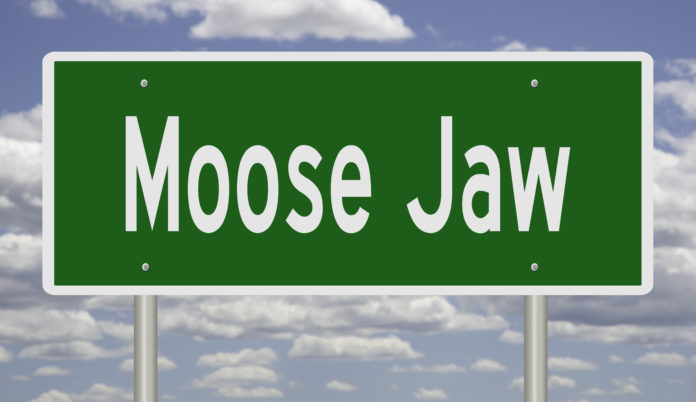
Moose Jaw in Saskatchewan has become the latest to launch details of its participation in the Rural & Northern Immigration Pilot (RNIP).
In a statement on a new website, Moose Jaw says its selection committee will begin accepting employer inquiries in late 2020.
Applications from immigration candidates will start in either late 2020 or early 2021, according to the statement.
“The community will utilize the Rural and Northern Immigration Pilot to continue to strengthen our local economy and support the development of our workforce,” the statement said.
Candidates are required to have a full-time job offer from an approved employer, meet federal eligibility criteria (see below) and community criteria, to be published at a later date.
“We are very excited to be participating in an immigration program that creates a path to permanent residence for skilled foreign nationals who are able to fill local job vacancies and want to live in Moose Jaw and the surrounding area,” the Moose Jaw website states.
Read More
Sudbury Issues 6 Invites In First Draw Through Rural & Northern Immigration Pilot
Rural & Northern Immigration Pilot: Sudbury, Ontario Open To Applications
Brandon, Manitoba Begins Accepting Applications For Rural and Northern Immigration Pilot
The RNIP is designed to help bring new skilled worker immigrants to smaller communities.
The five-year federal immigration pilot is designed to help smaller communities with aging populations and labour shortages, which struggle to attract and retain new immigrants.
It is a community-driven program that aims to spread out the benefit of immigration.
To be included in the pilot, communities must:
- Have a population of 50,000 or less and be located at least 75km from the core of a Census Metropolitan Area, OR
- Have a population of up to 200,000 people and be considered remote from other larger cities, according to the Statistics Canada Remoteness Index.
Steps to Permanent Residence
- Candidates must check they meet both the federal government eligibility requirements and community-specific requirements (see below).
- Find an eligible job with an employer in one of the participating communities (listed below).
- Candidates with a job offer can submit an application for recommendation to the community.
- Candidates with a community recommendation can apply for permanent residence.
Moose Jaw is one of 10 communities that have now launched their RNIP application processes.
The others are Sudbury, Timmins, Sault Ste. Marie and Thunder Bay in Ontario, Claresholm in Alberta, Brandon and Altona/Rhineland in Manitoba, plus Vernon and West Kootenay in British Columbia.
North Bay in Ontario is the only community involved in the pilot yet to publish details of its application process.
RNIP Participating Communities
| Community | Community website |
| North Bay, ON | Coming soon |
| Sudbury, ON | www.investsudbury.ca/how-can-we-help/immigration-options/ |
| Timmins, ON | Timmins RNIP |
| Sault Ste. Marie, ON | www.welcometossm.com |
| Thunder Bay, ON | www.gothunderbay.com |
| Brandon, MB | www.economicdevelopmentbrandon.com |
| Altona/Rhineland, MB | www.seedrgpa.com |
| Moose Jaw, SK | www.moosejawrnip.ca |
| Claresholm, AB | www.claresholm.ca/rural-northern-immigration-pilot |
| Vernon, BC | www.rnip-vernon.ca |
| West Kootenay (Trail, Castlegar, Rossland, Nelson), BC | www.wk-rnip.ca |
RNIP Federal Government Eligibility Requirements
1) Work Experience/International Student Exemption
Candidates must have qualifying work experience or have graduated from a publicly-funded post-secondary institution in the recommending community.
Work Experience
Candidates must have one year of continuous full or part-time work experience (1,560 hours) in the last three years. The work experience must be in one occupation and must include most of the main duties and all of the essential duties listed in the National Occupational Classification (NOC).
International Students
Candidate who are international students are exempt from needing work experience provided they meet the following requirements:
Scenario 1
- They graduated with a credential from a minimum two-year-long post-secondary program in the recommending community.
- They were studying as a full-time student for the full duration of the two or more years.
- They received the credential no more than 18 months before the date of application for permanent residence.
- They were in the community for at least 16 of the last 24 months spent studying to get the credential.
Scenario 2
- They graduate with a master’s degree or higher
- They studied as a full-time student for the duration of the degree in the recommending community.
- They received the degree no more than 18 months before the date of application for permanent residence.
- They were in the community for the length of their studies.
2) Language Requirements
Candidates must meet the Canadian Language Benchmarks (CLB) or Niveaux de compétence linguistique canadiens (NCLC) based on the National Occupational Classification of their job.
The minimum language requirements for each NOC category are
- NOC 0 and A: CLB/NCLC 6
- NOC B: CLB/NCLC 5
- NOC C and D: CLB/NCLC 4
3) Educational Requirements
Candidates must have a Canadian high school diploma or an equivalent foreign credential with an accredited educational credential assessment (ECA) report.
4) Settlement Funds
Candidates must prove they have enough money to support themselves and family members while they get settled in their community. This includes family members who may not be coming to Canada.
Candidates already working legally in Canada are exempt from settlement fund requirements.
| Number of family members | Funds you need (in Canadian dollars) |
| 1 | $8,722 |
| 2 | $10,858 |
| 3 | $13,348 |
| 4 | $16,206 |
| 5 | $18,380 |
| 6 | $20,731 |
| 7 or more | $23,080 |
5) Intention to Reside
To participate in the pilot, you must plan to live in the community.
Watch the RNIP Video

